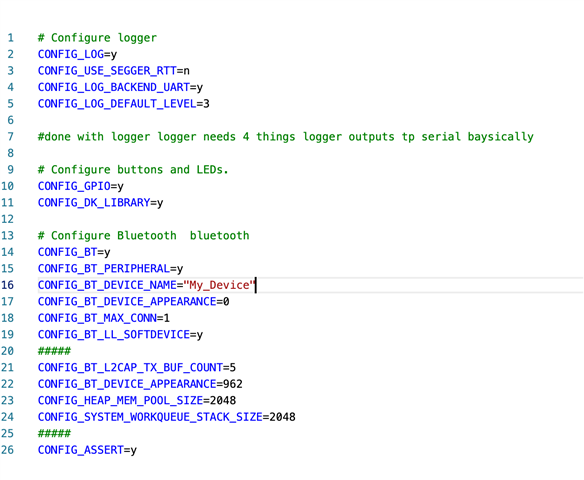I am very familiar with PICs and some atmega stuff, just graduated university ee and the project I am working on requires transmitting very small amounts of data continuously via ble protocol. Actually transmitting real time gyroscope data. Nrf modules seemed the easiest/cheapest for our purpose and decided we would most likely end up going with someones 52 series module. I have been playing around awhile with the nordic 52 development board however I am finding the learning curve fairly steep with zephyr. I can do basic stuff, gpio, pwm, interrupts etc but am struggling with bluetooth. Would it be possible to get an example of a central device and peripheral device with a custom service and characteristic 128, that simply sends or receives 24 or more bits of data at a time. I'm really trying to learn this and just feel myself lost, thanks. I have been through many of the peripheral and central zephyr examples.




